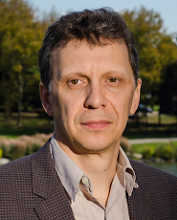Today, a colleague has shared the following article with me "University of Florida Eliminates Computer Science Department, Increases Athletic Budgets. Hmm." Here's a quick excerpt:
“Actually, the real villains here are the Florida state legislators, who have cut the budget for their flagship university by 30% over the past 6 years. Meanwhile, just two days ago, Florida governor Rick Scott approved the creation of a brand-new public university, Florida Polytechnic University, to be located near the city of Tampa.”What do I think about this? Well many things, but most of all: instead of looking for the villains or trying to do good with other people money - of course, thinking of the public good in the most objective way, which usually turns out to be somewhat skewed and biased, at best - we should get out of the business of subsidizing education in this fashion and let the market forces work. The education should cost what it costs, and if it is paid by people who consume the service they are more likely to get what they need. If the demand for computer science education is high and there are no distorting subsidies involved, it would be suicidal for the business to cut down on the product in such demand. So, it simply would not happen.

Comments
Post a Comment